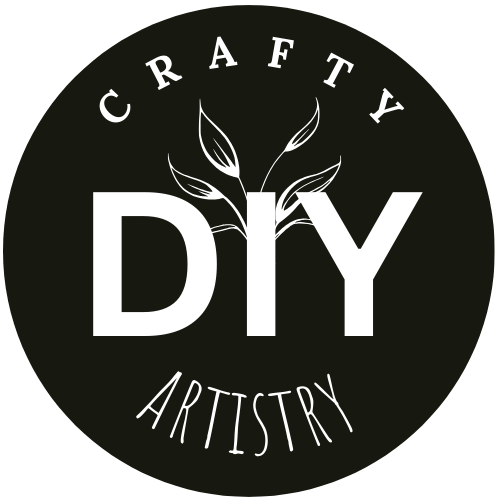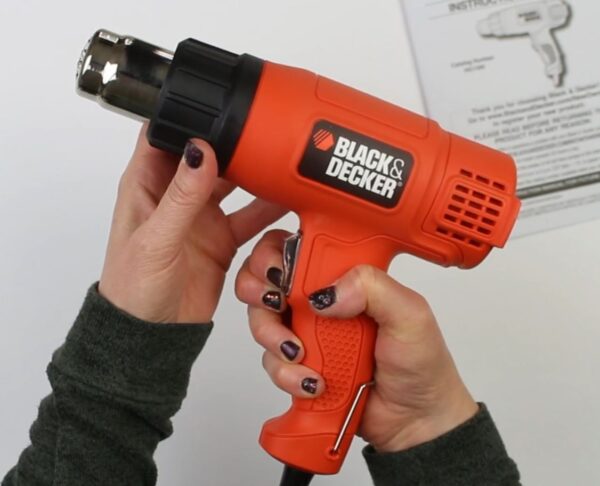Is Your Epoxy Food Safe? How To Check ✅
Welcome to our resin blog. You must be here because you are wondering if epoxy resin is food safe? We’ll help you out with everything you need to know.
Whether you’re a seasoned resin user or new to resin, it’s important to use resins with confidence. Especially when it comes to applications involving contact with food. Or maybe you just bought a product like a cutting board or tumbler from Etsy and wonder if it is food safe.
In this resin guide, we’ll walk you through some steps to help you verify if the epoxy resin you use is genuinely food safe.
The safety of food-related projects begins with understanding the characteristics of your epoxy resin. We’ll explore the importance of checking product labels for clear indications of being “food-safe” or “FDA-approved.”
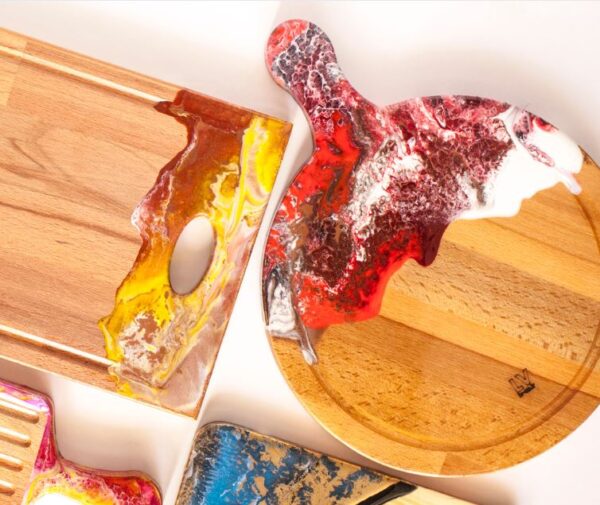
Beyond the packaging, we’ll give you some information found in Material Safety Data Sheets (MSDS). This makes sure you can decipher the chemical composition and potential hazards associated with the resin.
We’ll also discuss the importance of reaching out to manufacturers for personalized insights. You can chat with them about certifications and standards that guarantee your epoxy resin meets stringent food safety criteria.
Join us on this journey to learn about food safe epoxy while prioritizing the safety of those who will enjoy your edible masterpieces. Let’s dive in!
How To Check If Epoxy Resin Is Food Safe
1. Check the Product Label and Documentation:
When validating the food safety of your chosen epoxy resin, the first checkpoint is the product label and accompanying documentation.
The label is your initial guide, offering a snapshot of crucial information that can determine the resin’s suitability for food-related applications.
Beyond catchy marketing terms, read the specifics listed on the label—ingredients, usage instructions, and any relevant safety precautions.

A meticulous examination of this information sets the foundation for a resin that is truly food safe with contact.
Look for statements on the product label or packaging indicating that the epoxy resin is food-safe or FDA-approved.
Manufacturers often provide this information to assure users of the product’s suitability for food-contact applications.
2. Material Safety Data Sheet (MSDS):
The Material Safety Data Sheet (MSDS) or Safety Data Sheet (SDS) is the document that helps you understand the food safety implications of epoxy resin.
This resource offers detailed info of the resin’s chemical composition and potential hazards.
Within the MSDS, you can find precise information about the ingredients used, enabling you to scrutinize the compatibility of the epoxy resin with food applications.
Each component should be listed, allowing you to identify any substances that may pose concerns related to health or safety.
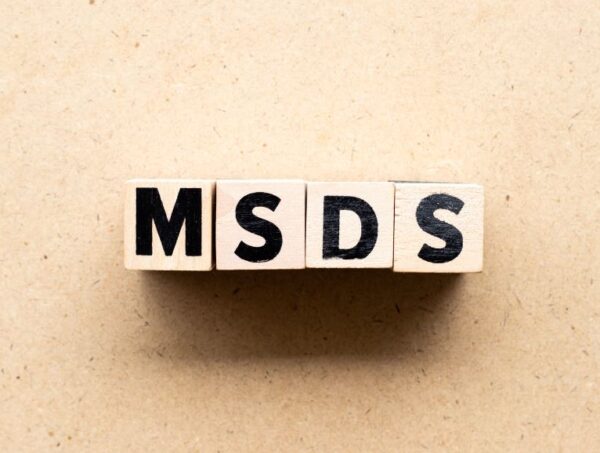
Furthermore, the MSDS serves as a guide for safe handling practices. Sections dedicated to resin toxicity, exposure controls, and emergency measures equip users with the knowledge needed to use the resin responsibly.
Manufacturers often include guidelines on storage conditions, disposal methods of resin, and recommended personal protective equipment.
As a regulatory requirement for many products, a readily available MSDS reflects a manufacturer’s commitment to transparency and safety. These are a must for those working on food-related projects.
If the resin that you are using does not come with a MSDS sheet, then do not use it for food projects.
3. Contact the Manufacturer:
When checking on the food safety of epoxy resin, a step worth taking is reaching out directly to the manufacturer.
Establishing direct communication allows for personalized insights into the specific characteristics of the epoxy resin in question. Not all resin is formulated the same way.
Manufacturers often have dedicated customer support or technical teams equipped to address inquiries regarding the resin’s intended use and safety certifications.
When I was working with ArtResin, I could find their MSDS sheets right away. But I also emailed and asked them specific questions that I had and they answered right away.
By initiating contact, you can get clarification on any questions you have. Try to get documentation that supports being able to use the resin with food touching it.
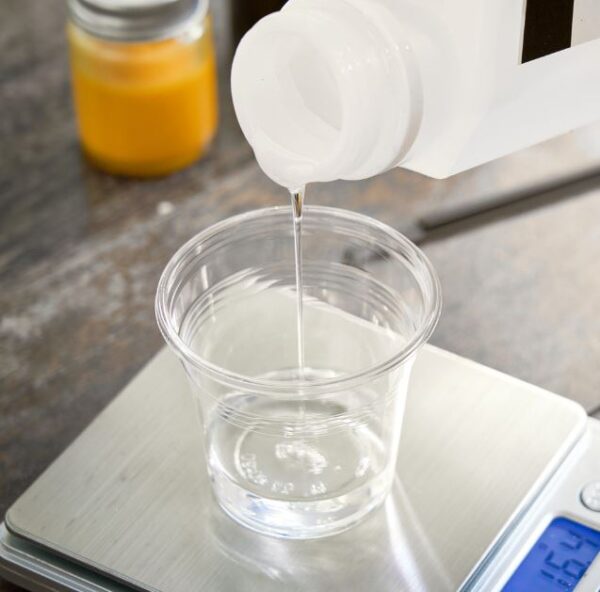
Emailing the manufacturer can also give valuable information on the production processes, quality control measures, and any additional steps taken to for food safety.
Inquiries may encompass queries about sourcing raw materials, adherence to industry standards, and the incorporation of best practices for food safety.
Ultimately, reaching out to the manufacturer will give you proper firsthand information, so that you can make informed decisions about the safety of the epoxy resin you choose for food projects.
4. Certifications and Standards:.
Look for epoxy resins explicitly stating compliance with recognized standards and certifications, such as those set forth by regulatory bodies like the Food and Drug Administration (FDA) or other international safety agencies.
These certifications act as external validations, signifying that the epoxy resin has undergone rigorous testing and meets stringent criteria for use in applications involving food contact.
Familiarize yourself with these certifications and understand their implications, so that the epoxy you use aligns with the highest safety standards established by industry authorities.

Some certifications may focus on specific aspects such as chemical composition, leaching potential, or overall product safety. Manufacturers committed to transparency and product quality often provide accessible information about certifications on their websites or in product documentation.
By choosing epoxy resins with recognized certifications, you can be confident that the product has been thoroughly evaluated for its safety in food-related applications.
5. Independent Laboratory Testing:
Exploring independent laboratory testing is a another step in making sure the resin you use is food safe. Independent testing involves subjecting the epoxy resin to assessments conducted by third-party laboratories that are not affiliated with the resin manufacturer.
These tests are designed to verify and validate the safety claims made by the manufacturer, providing an additional layer of assurance for users concerned about the resin’s suitability for food-related applications.
By seeking information about independent laboratory testing, you can gain insights into the resin’s performance under diverse conditions, potential risks, and adherence to specific safety benchmarks.

When selecting epoxy resin for culinary or beverage projects, look for products that explicitly disclose the results of independent laboratory testing if possible.
Manufacturers dedicated to transparency often showcase these test results on their websites or include them in product documentation.

Epoxy Resin Projects That Come In Contact With Food
1. Epoxy Resin Coating for Tables and Countertops:
Crafters often use epoxy resin to create a glossy, durable finish for wooden tables and countertops. This not only enhances the aesthetic appeal but also provides a smooth and easy-to-clean surface.
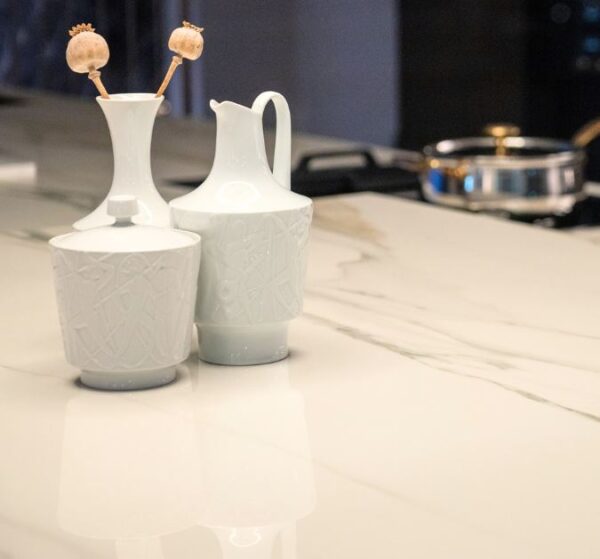
2. Customized Epoxy Resin Cutting Boards:
Handcrafted cutting boards made from wood or other materials are frequently coated with food-safe epoxy resin. This protective layer not only adds a unique design element but also gives durability of the cutting surface while maintaining food safety.
3. Resin-Coated Drinkware & Tumblers:
Epoxy resin is used to create personalized and decorative coatings for glasses, mugs, and tumblers. The resin gives a smooth, waterproof finish, making these items suitable for serving beverages and adding a touch of creativity to the dining experience.

4. Epoxy Resin-Encased Serving Trays:
Serving trays made from wood or other materials can be transformed into functional art by encapsulating decorative elements within layers of epoxy resin. These trays provide a stylish platform for serving food and beverages at gatherings.
When undertaking such projects, it’s important to select epoxy resins made for food contact. Always follow the manufacturer’s recommendations and guidelines for the specific epoxy resin product being used.
Epoxy Food Safe Projects FAQ
No, not all epoxy resins are suitable for food-related applications. It’s crucial to choose epoxy resins explicitly labeled as “food-safe” or “FDA-approved.”
These designations indicate that the resin has undergone testing and meets the necessary standards for safe contact with food.
To verify the food safety of epoxy resin, check the product label for explicit indications of being food-safe or FDA-approved. Additionally, review the Material Safety Data Sheet (MSDS) for detailed information on the resin’s chemical composition and potential hazards.
Consider reaching out to the manufacturer for personalized insights and look for certifications or standards compliance related to food safety.
Not necessarily. Clear epoxy resins vary in composition. Some may contain additives or components that are not safe for direct food contact.
Always choose resins specifically formulated for food-related applications.
Yes, look for epoxy resins that comply with recognized certifications and standards for food safety.
Common certifications include FDA compliance, NSF certification, and other international standards related to materials intended for food contact.
These certifications provide assurance that the epoxy resin has met stringent safety criteria.
While user reviews can offer insights into the experiences of others, they should not be the sole basis for determining the food safety of epoxy resin.
Always prioritize information from the product label, MSDS, manufacturer communication, and certifications to make an informed decision.
User reviews may provide practical tips. But they should complement, not replace, comprehensive research into the resin’s specifications and safety credentials.

The Best Food Safe Epoxy Resins
1. ArtResin
ArtResin is a widely known epoxy resin brand that is often used in artistic and craft projects, including those involving food. It is advertised as non-toxic and food-safe when cured.
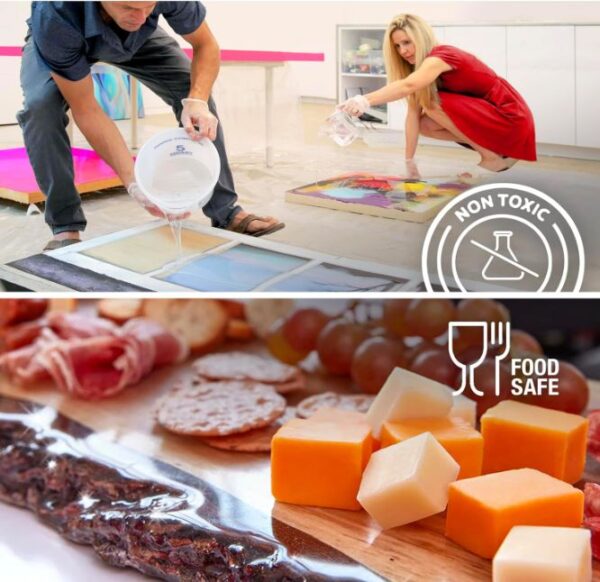
ArtResin is known for its clarity, UV resistance, and self-leveling properties. This makes it suitable for a variety of applications, including coating surfaces and creating art pieces.
2. Promise Epoxy Resin
Promise Epoxy resin offers a crystal clear tabletop epoxy that is commonly used for creating glossy finishes on surfaces like tables and countertops.
This epoxy resin is often praised for its clarity, self-leveling nature, and resistance to yellowing. They mention that it is formulated to be food-safe when cured.
3. Craft Resin
Craft Resin typically provides information on its website and product documentation regarding the safety of its epoxy resin for use in applications that come in contact with food.
It’s important to review the specific product details, certifications, and guidelines provided by Craft Resin to double check that it aligns with your requirements for food-safe applications.
Keep in mind that the popularity of specific products can vary based on regional availability, individual preferences, and evolving market trends.
Always check the product specifications, certifications, and reviews to make sure that a particular epoxy resin meets your specific requirements for food-safe uses. Additionally, be aware that new products may have been introduced to the market since my last update.
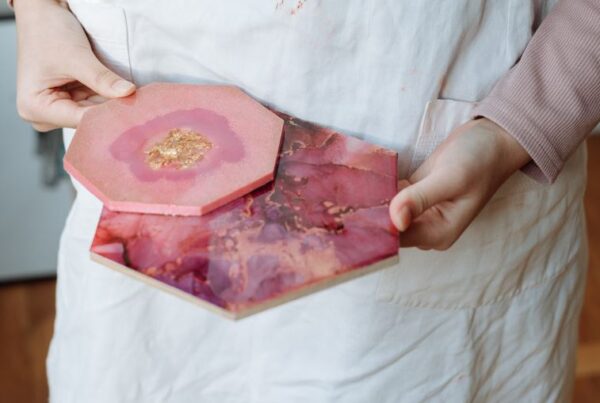
Tips For Choosing The Proper Food Safe Resin
1. Consider Clarity and UV Resistance:
Depending on your project, consider the clarity and UV resistance of the epoxy resin. Some applications, like coating wooden surfaces or creating transparent items, may benefit from resins with excellent clarity and resistance to yellowing when exposed to sunlight.
2. Read User Reviews and Experiences:
Explore user reviews and experiences with the specific epoxy resin you are considering.
While not a substitute for official safety information. Real-world experiences from other crafters can provide insights into the resin’s practicality, ease of use, and performance in food-related projects.
Pay attention to any red flags or concerns raised by users.
3. Low VOC and Odorless Formulas:
Opt for epoxy resins with low Volatile Organic Compounds (VOC) levels and those labeled as odorless.
Resins with minimal off-gassing and low odor are preferable for projects involving food, as they reduce the risk of unwanted smells or chemical leaching into the surrounding environment.

4. Temperature Resistance:
Consider the temperature resistance of the epoxy resin, especially if your project involves serving hot or cold foods.
Check that the resin can withstand temperature fluctuations without compromising its integrity, preventing issues such as warping or cracking.
5. Flexibility and Impact Resistance:
Depending on the application, consider the flexibility and impact resistance of the epoxy resin. Items like flexible molds or items subject to potential impacts may benefit from resins designed to withstand bending or resist cracking upon impact.
6. Ease of Application and Mixing:
Look for epoxy resins that offer ease of application and mixing. Some resins are formulated for beginners with longer working times or reduced air bubbles.
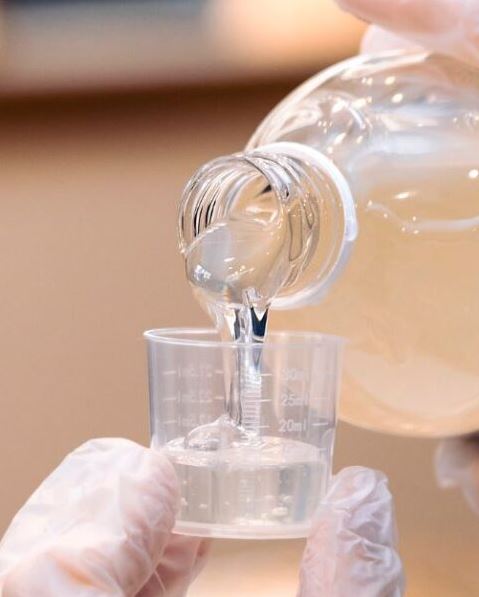
7. Compatibility with Pigments and Additives:
If you plan to add pigments or other additives to create unique designs, check that the chosen epoxy resin is compatible.
Some resins have specific recommendations regarding pigments and additives. Check our article about the proper pigments to use for epoxy resin.
This can be particularly helpful for achieving smooth finishes in intricate projects without compromising on food safety.
Remember that using epoxy resin in food-related applications requires careful consideration of the entire application process. This includes preparation, curing, and post-curing steps.
Always follow the manufacturer’s instructions and recommendations for the specific epoxy resin product you are using.
If in doubt, contact the manufacturer directly for clarification on food safety concerns.
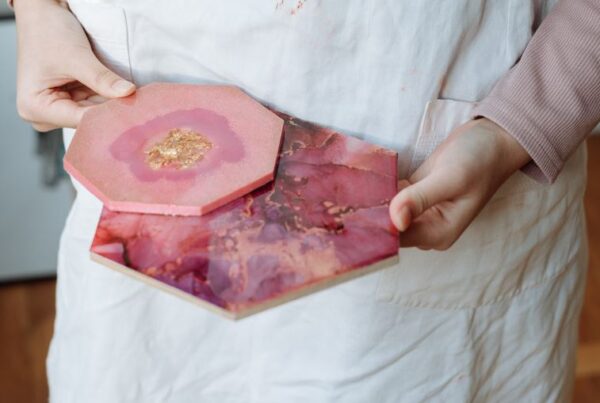
In Closing: Thank you for taking the time to explore the world of epoxy resins and their applications in food-related projects with us.
We hope this guide has been informative. Whether you’re crafting resin-coated surfaces, personalized cutting boards, or other unique items, prioritizing food safety is key.
Remember to check product labels, review safety documentation, and consider user experiences to make informed decisions.
Happy crafting, and thanks again for reading!
